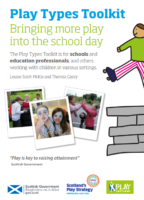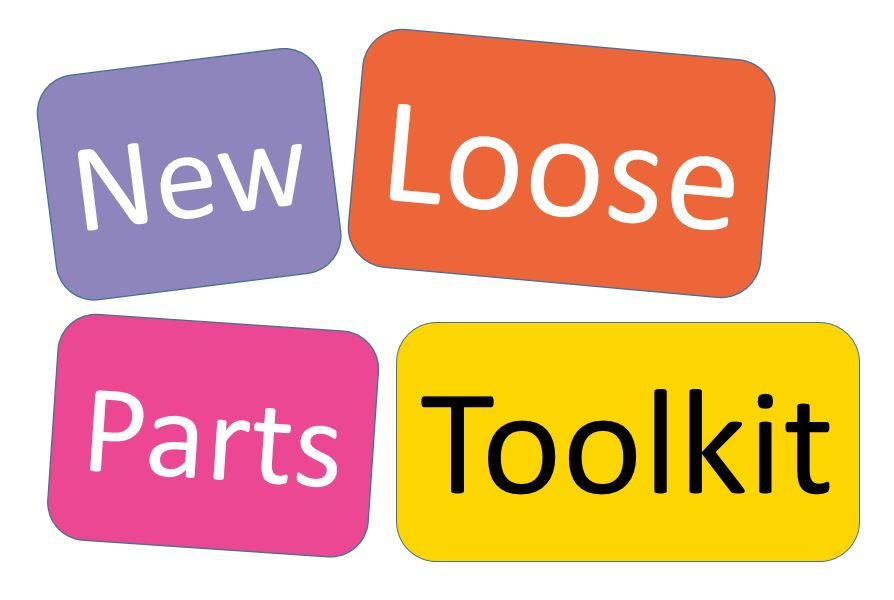 Play Scotland have created a new toolkit
Play Scotland have created a new toolkit
“Play is key to raising attainment”
Scottish Government
Play Scotland Toolkit
Play Scotland’s Play Types Toolkit is for schools and education professionals, and others working with children in various settings.
Playing is an integral part of children’s day in many educational and childcare settings. Children play before the bell goes in the morning; at playtime and lunchtime; and after school ends. Increasingly, playing is part of class time across Scotland too. Falkirk Council staff an use this resource to help recognise the interconnections between playing, learning, growing, developing, being healthy and being happy.
Who is the Toolkit for?
The Play Types Toolkit is intended for schools and education professionals though we are sure people in other settings will also find it useful.
The aim is to highlight the range of types of play children experience, their vital contribution to learning and development, and to make integration of play into the curriculum simpler.
What do we mean by play types?
Play types can simply be described as the different behaviors we can see when children are playing.
This toolkit uses the play types from play theorist Bob Hughes’ Play Types – Speculations and Possibilities in which he explains that ‘each play type is both distinctly and subtly different from the others. It is useful to be able to recognise them since engaging in each one is a necessary conrollary for a child’s healthy development.’
 I know many of you have been keenly awaiting the publication of the Loose Parts Toolkit 2019. Find it here https://www.inspiringscotland.org.uk/publication/loose-parts-play-toolkit-2019-edition/
I know many of you have been keenly awaiting the publication of the Loose Parts Toolkit 2019. Find it here https://www.inspiringscotland.org.uk/publication/loose-parts-play-toolkit-2019-edition/ Play Scotland have created a new toolkit
Play Scotland have created a new toolkit